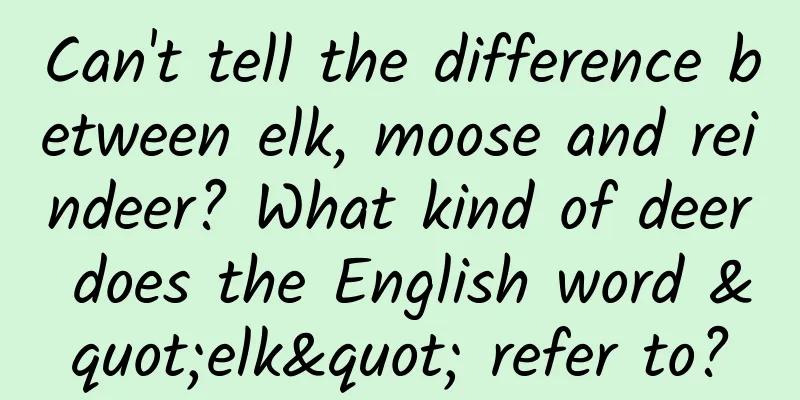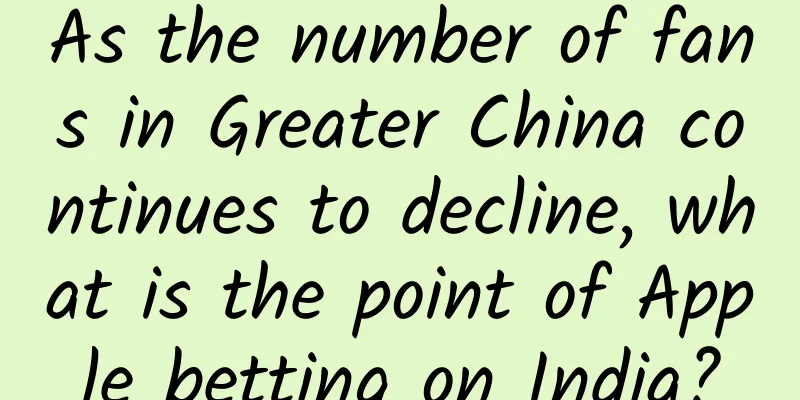Can't tell the difference between elk, moose and reindeer? What kind of deer does the English word "elk" refer to?

|
In this age of Internet development, when we come across a word (in English or Chinese) that we don't know how to translate, we are now accustomed to searching on the Internet, but we don't know that sometimes the translation we find is wrong. Let's take the word "elk" as an example! Please see the translation of "elk" by the following online search engines, websites and translation tools: The following is the translation of a mobile phone APP: The result is obvious. Without exception, all of them are translated into "elk"! It must be pointed out here that this result is wrong. Why did the author say this? Let's trace the source. First, if you want to make sure whether the Chinese translation of an English word is correct, it is recommended to check its English explanation! Because the author is not a translator, and does not have many reference books on hand, there is only one "Oxford Advanced Learner's English-Chinese Dictionary (Fourth Edition Supplement)" (original author: AS Hornby, translated by: Li Beida, published by Commercial Press and Oxford University Press in 2002). The translation of "elk" (page number: P 468) is as follows: This is the correct translation! As the translation given in the book is relatively simple, elk refers to a kind of deer native to Northern Europe, Northern Asia and North America. The English explanation in the Oxford Advanced Learner's Dictionary of Current English is derived from the original English version of Oxford Advanced Learner's Dictionary of Current English published by Oxford University Press, so there is certainly no problem with its interpretation; and the Chinese explanation is given by Mr. Li Beida and the Commercial Press, and its interpretation is rigorous and accurate, which is admirable! As for other officially published English-Chinese dictionaries, it remains to be verified, let alone! Then, if you know about elk, you will know that elk is endemic to China. Historically, there is no distribution of elk in Europe and America. The existing elk are either captive or free-range, and are the descendants of individuals introduced from China in the late Qing Dynasty. Before 1865, elk was unknown to Europe and America. French naturalist and missionary Pierre Armand David was the first to announce it to European zoologists and naturalists. In modern times, biologists in Europe and America, which are leading in science and technology, have formed a relatively complete method for naming newly discovered species: whoever discovers an unknown or unnamed species is qualified to name it, and give it a unique academic name in Latin. Of course, they will also name it in their native language. The common practice is to add the name of the discoverer plus the name of a certain type of animal or plant to which the species belongs to call the species. Take the elk as an example: the elk is called Père David's deer in English. Père means "father", David of course refers to the discovery by Pierre Armand David, and deer means it is an animal of the deer type. For ordinary people, when naming foreign things, it is impossible to directly use the name of existing things to call the things you know for the first time. For example, when we first knew Landon in the UK, we could not directly call it "Beijing". The most common method is of course transliteration - London! When calling the new species of elk, English native speakers of course also transliterate it, calling it milu, mi-deer or milu deer. This is why the English word "elk" which has been used for moose cannot be used for elk. However, when the English language began to spread to the East, the development of biology in our country was not systematic, and there was no consensus on the names of domestic biological species. In my opinion, the reason why "elk" was mistakenly translated into "elk" is that the earliest scholars who spread English-Chinese translation had no biological basis and could not distinguish that moose and elk are different species. However, no one corrected this mistake in the later period, so it has continued to this day. Hopefully, one day, experts and scholars in the field of translation will be able to correct this error - at least all of it, not just individual cases like the Oxford Advanced Learner's English-Chinese Dictionary! |
<<: Without realizing it, we “eat” 40,000 bananas every year…
>>: Cai Lun might not have thought that the papermaking technique he improved would turn green!
Recommend
International Day for the Elimination of Domestic Violence丨Beating is love, scolding is love? Stop making excuses! These are all domestic violence!
About personal safety protection order The person...
The major events that shook the Android world in 2014
[[125705]] In the past few years, the Android cam...
Taobao operation: How to use Weitao to improve conversion rate?
Since Taobao was redesigned and the Weitao sectio...
Chinese rice wine, which has a history of thousands of years, is not as simple as you think!
The best wine, the secrets in the jar With that m...
Must-know tools for defect tracking, testing, parallel programming, etc.
Defect Tracking 1. Bugzilla This bug tracking sof...
iOS 14.5 is available first! 217 new emojis added, green screen issue fixed
Apple's iOS system is very comfortable to use...
【3Dmax】LM Ranger advanced animation full process case teaching binding chapter
【3Dmax】LM Ranger Advanced Animation Full Process C...
How do To B companies do marketing promotion?
Before answering this question, there is actually...
What? You said the secret to delicious soda isn’t the bubbles?
Opening a bottle of iced soda and drinking it in ...
How to identify an AI bird photo? It is recommended to learn some bird guides first
With the emergence and rapid development of artif...
Don't touch it! The "smart drugs" that are popular among parents are actually psychotropic drugs, and taking them may cause addiction
Expert of this article: Wang Weibao, Endocrinolog...
A must-know question for young people: What is the May Fourth Movement?
Mixed Knowledge Specially designed to cure confus...
What’s so special about a football player’s dining table?
As the World Cup begins, more and more reports ar...
How to promote APP and attract new users?
How to promote a primary APP? I personally think ...









